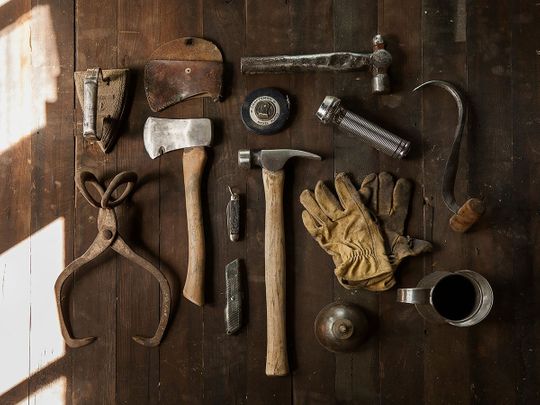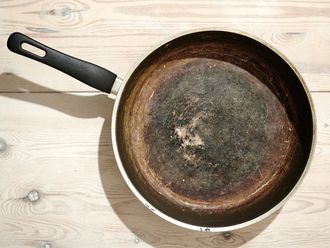
You probably have a hammer or a spanner in a toolbox at home. Did you know that the earliest evidence of humans using tools dates back to about 2.6 million years?
Click start to play today’s crossword and figure out the names of all the tools.
The way human beings shape and use tools is considered one of the most significant ways our species sets itself apart from others. Physiologically, we don’t have claws, thick hides or large fangs to scare off predators and establish ourselves in the food chain. So, we compensate by using our surrounding resources to shape effective tools, weapons and shelter, and give ourselves a superior advantage.
According to the US-based Smithsonian National Museum of Natural History, early humans in East Africa used hammerstones to pound, crush and access new foods. Archaeologists found stone tool marks on a zebra bone fossil, which indicates that early humans used stone tools to butcher animals at least 2.6 million years ago.
With the advent of cooking, human beings discovered that the control of fire required new tools. The earliest hearths are at least 790,000 years old, but some scientists think humans began cooking on fire more than 1.5 million years ago.
With the possibility of softening animal meat on a fire, humans then shaped sharper, deadlier tools to hunt. By at least 500,000 years ago, early humans were making wooden spears and using them to kill large animals.
Then came an explosion of old-school technology about 100,000 years ago, where humans discovered they could make much more specialised tools. For instance, they made needles from bones, which were used to make clothing. Spears with barbed edges were made and used to fish prehistoric catfish (each weighed as much as 68kg) and feed 80 people for two days.
Around 26,000 years ago, humans began weaving plant fibres to make baskets, and 20,000 years ago, in China, they learned to make pottery.
The fascinating way we shaped our tools, which then went on to shape our future, is a uniquely human story. Play today’s crossword and tell us how many tools you were able to identify, at games@gulfnews.com.








